A Prepackaged LibGuide Entry for moara.io
A ready-to-use LibGuide entry and short user guide for moara.io, covering the full literature review workflow from import and screening to synthesis and export.
A ready-to-use LibGuide entry and short user guide for moara.io, covering the full literature review workflow from import and screening to synthesis and export.
From the beginning of moara.io, we’ve been impressed with the consistency and rigor found in Library Guides (LibGuides) curated by university library teams. These guides are a trusted resource for helping both students and faculty navigate new technologies.
While many LibGuides now include sections on general AI models like ChatGPT, there’s still limited coverage of discipline-specific or “vertical” AI applications that directly support academic research and learning. In most cases, entries are reduced to brief descriptions or simple link lists.
To help fill that gap, we’ve created a concise, ready-to-use LibGuide entry for moara.io – which also doubles as a short user guide for anyone exploring the platform. If you’d like to adapt or expand this for your own library, feel free to do so, and reach out anytime at team@moara.io with questions or feedback.
One-line summary: moara.io is an AI-powered literature review workflow platform that helps users and teams complete literature reviews efficiently and methodically – from importing and screening papers to analyzing and exporting results.
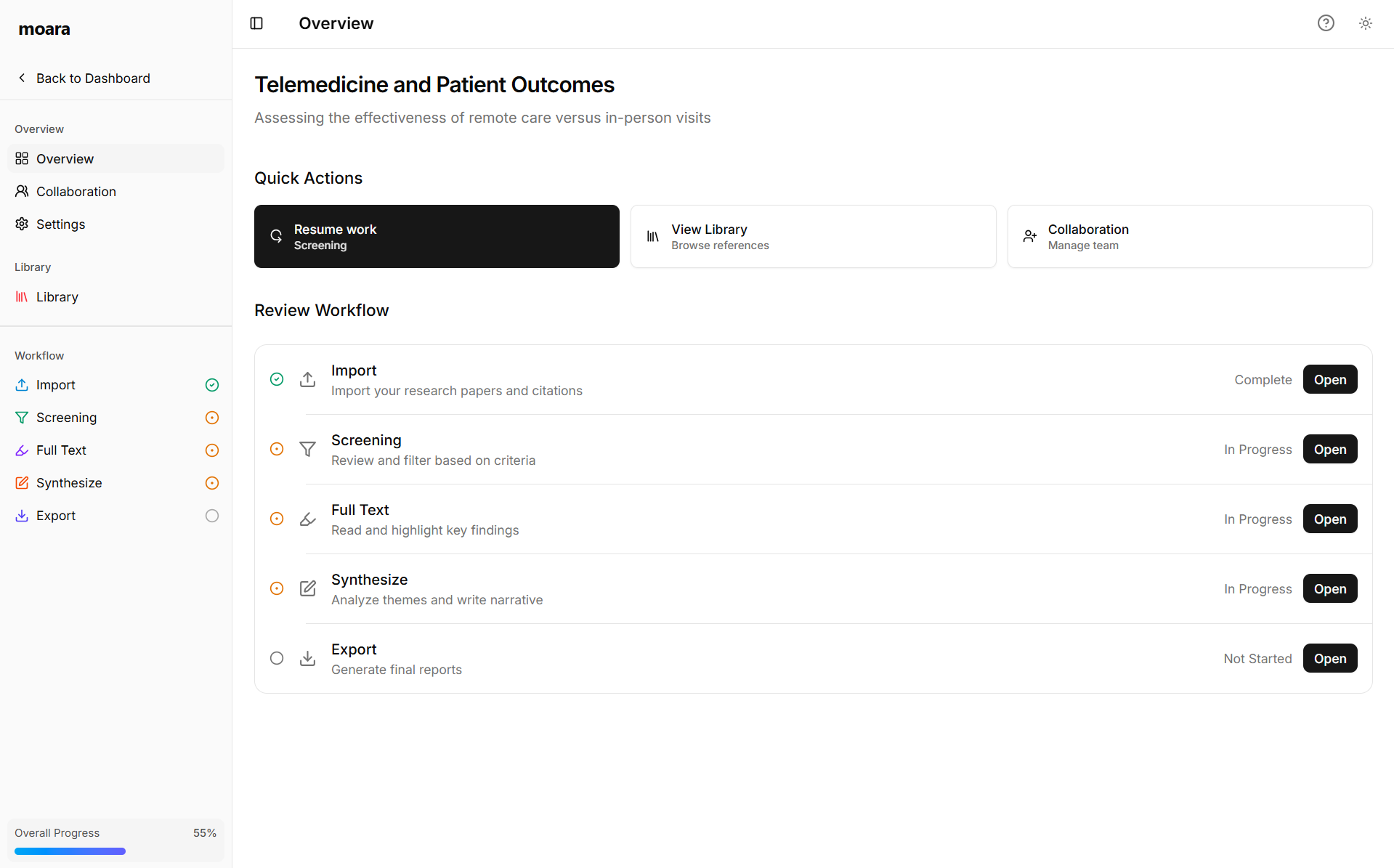
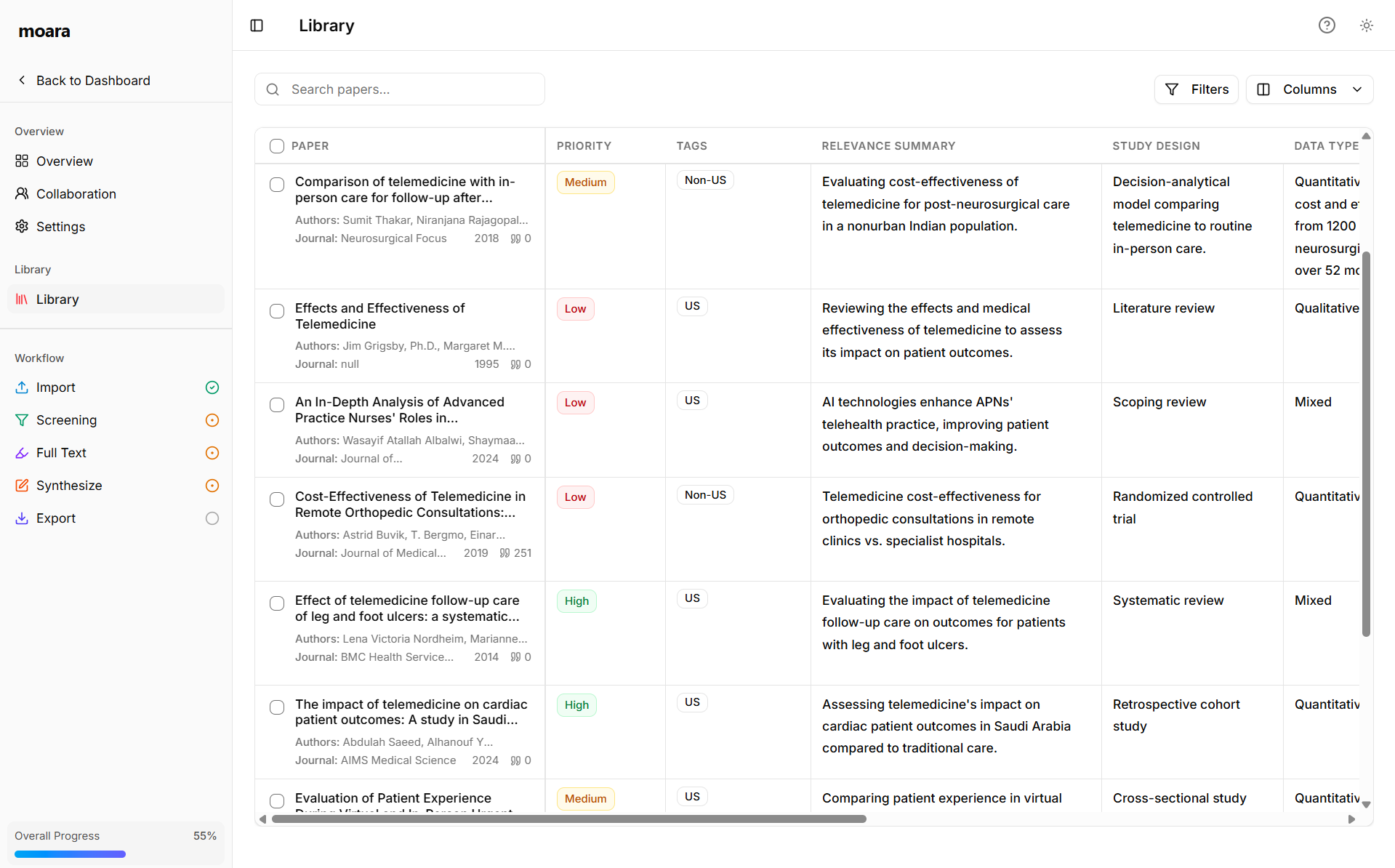
moara.io helps researchers, students, and librarians manage every stage of a literature review in one place. Users can search academic databases, organize and screen results, read and annotate full texts, and synthesize key findings into structured summaries. It’s designed to make reviews faster, more organized, and easier to reproduce.
Below is a walkthrough of how it works, featuring screenshots from inside the platform.
Start by creating your first review from the moara.io dashboard. Choose between a Narrative Review, ideal for broad topics and trend exploration, or a Systematic Review, which follows PRISMA and Cochrane guidelines.
Add a short title and description – these help moara.io generate an optimized search query later in the workflow.
moara.io gives you two ways to add papers:
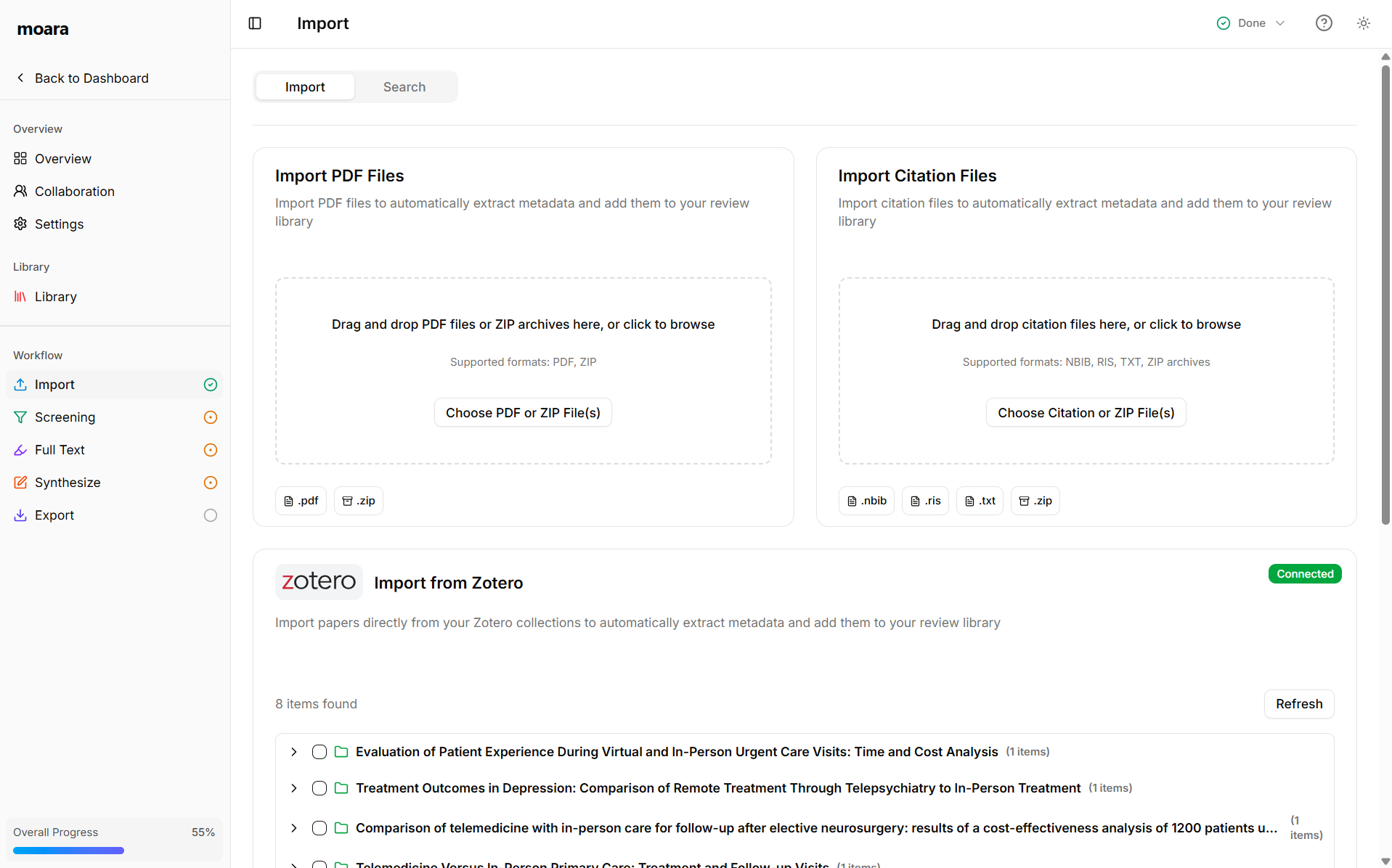
You can also let moara.io’s AI Query Builder create optimized search terms based on your project title and description.
Integration with Zotero, LibKey, and standard formats like RIS and BibTeX means you can manage all your papers in one place instead of juggling multiple tools.
Once your papers are added, moara.io helps you quickly identify what’s most relevant. Each paper includes an AI-generated relevance summary, a priority ranking (High, Medium, Low), and options for adding custom tags, notes, or assigning reviewers.
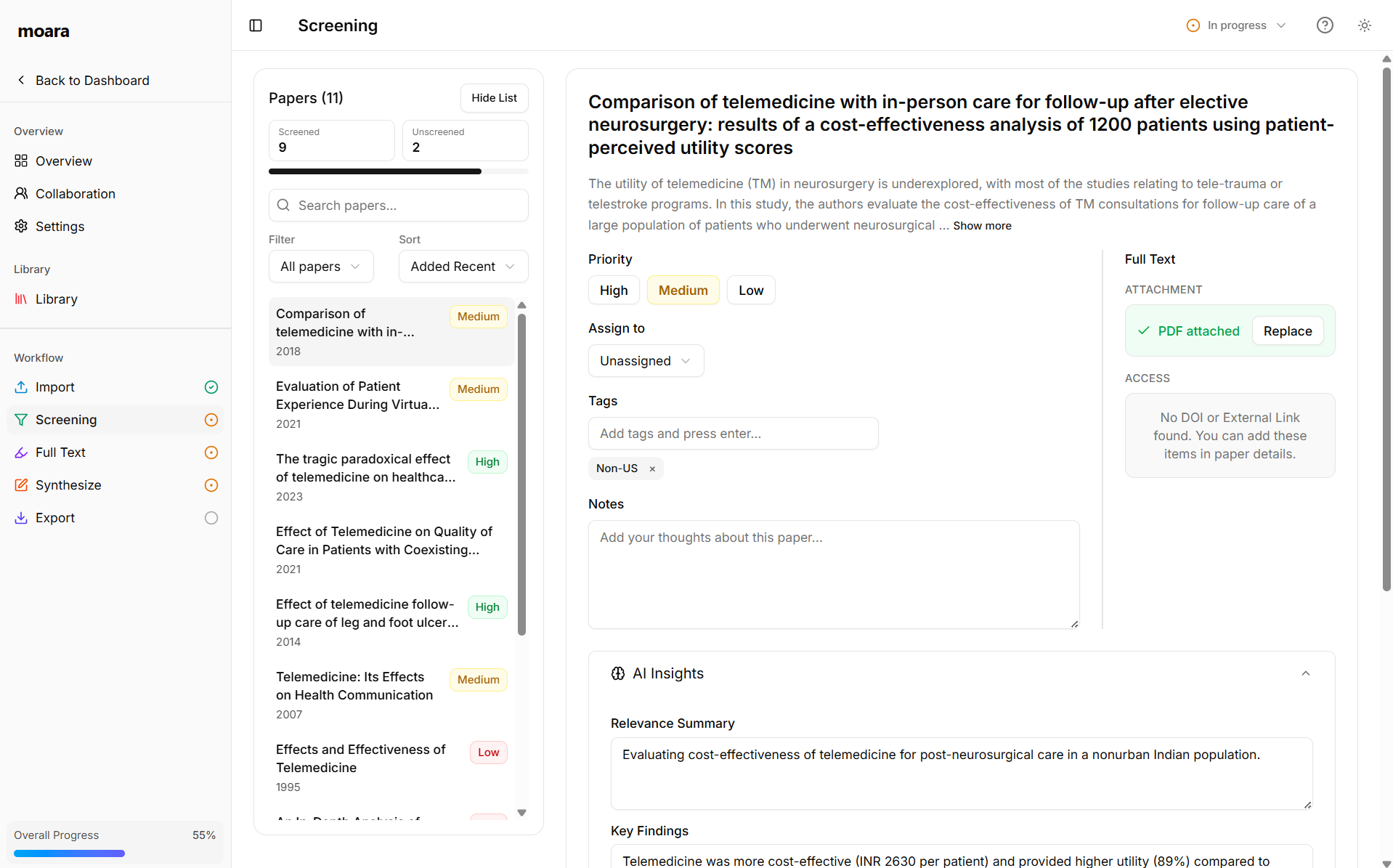
For team projects, you can assign papers to collaborators and track progress as you go.
After screening, you can move directly into Full Text Review to read and analyze papers inside moara.io. The built-in PDF viewer lets you open, highlight, and annotate documents without leaving the platform – keeping your notes, tags, and evidence all in one workspace.
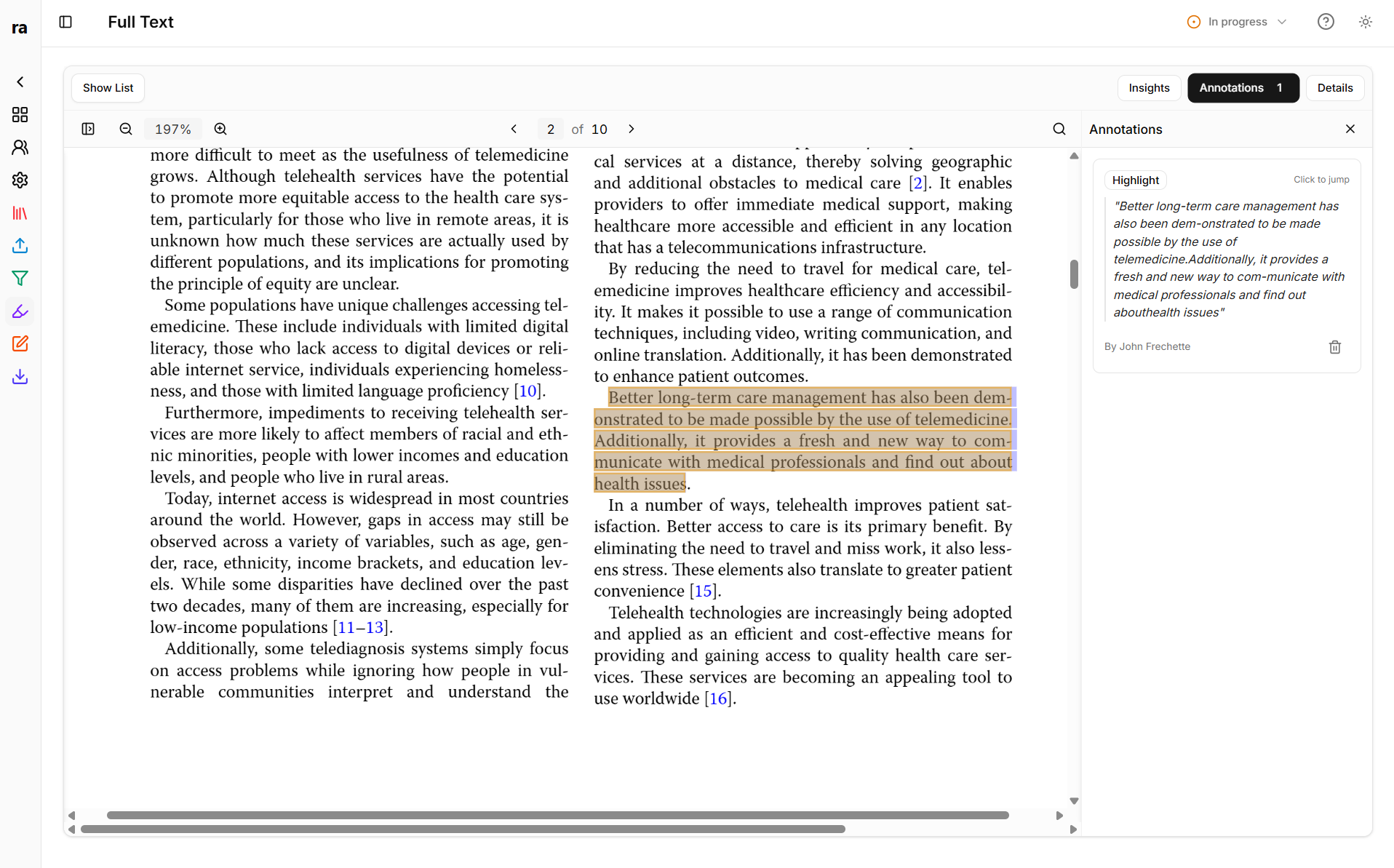
This section allows for:
The Synthesize page brings everything together. Here, moara.io analyzes your collection to identify recurring methodologies, findings, and gaps in the literature – each linked to supporting evidence.
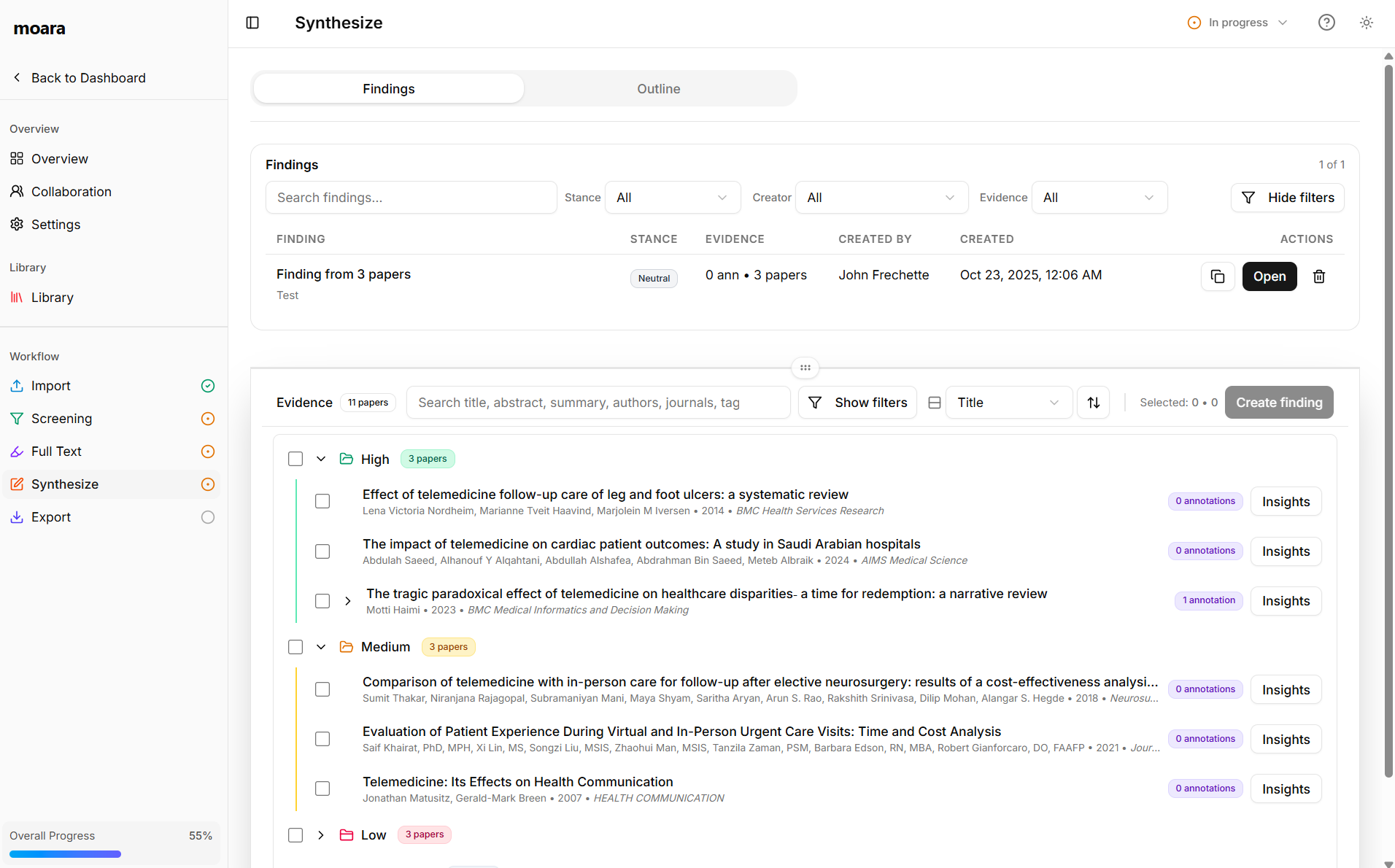
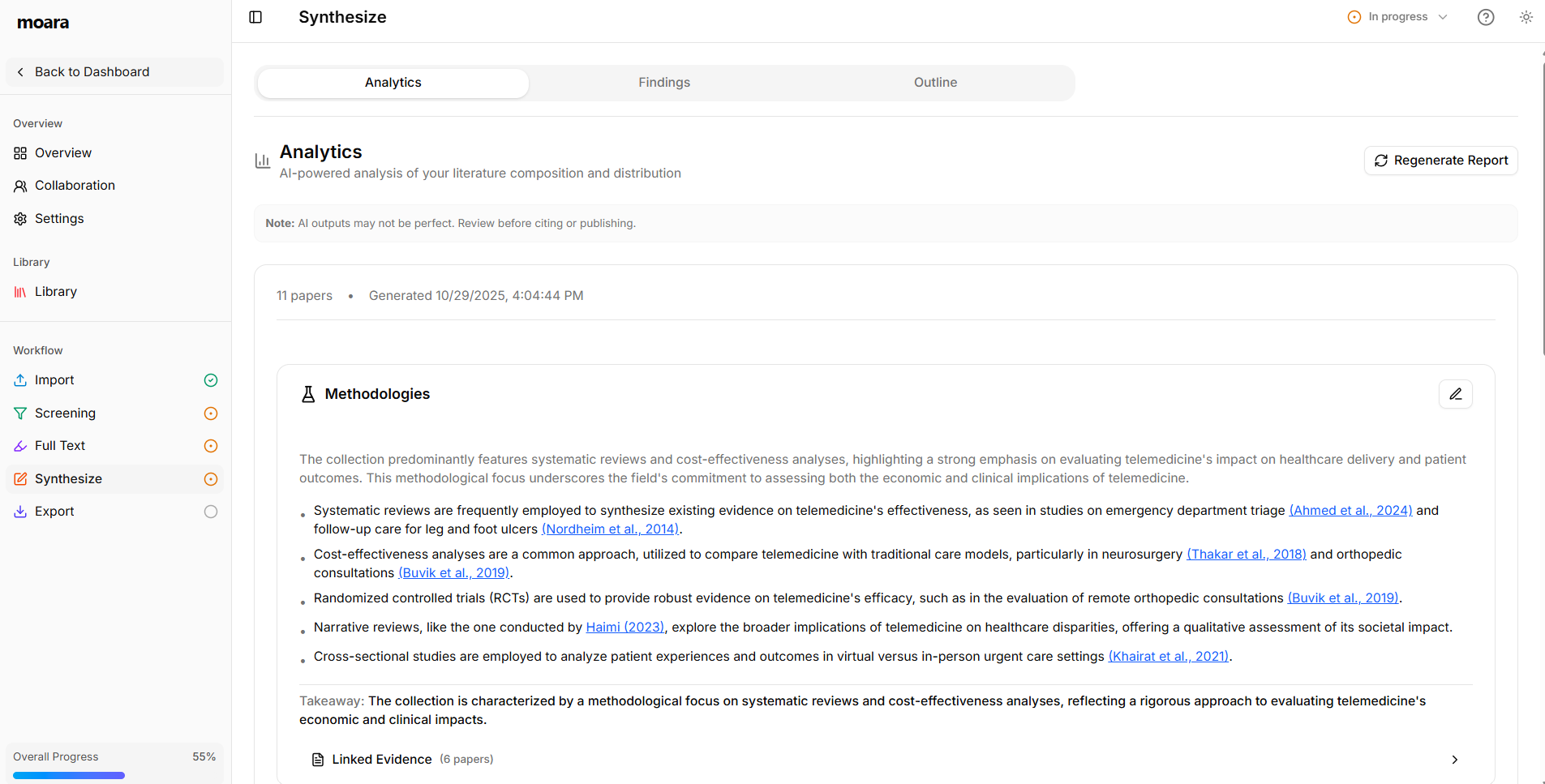
The page is organized into tabs:
Each insight can be reviewed, edited, or regenerated at any time to reflect newly added papers.
Once you’re ready to share your work, moara.io offers flexible export options – either as a complete review or individual components like findings tables, annotations, or structured data.
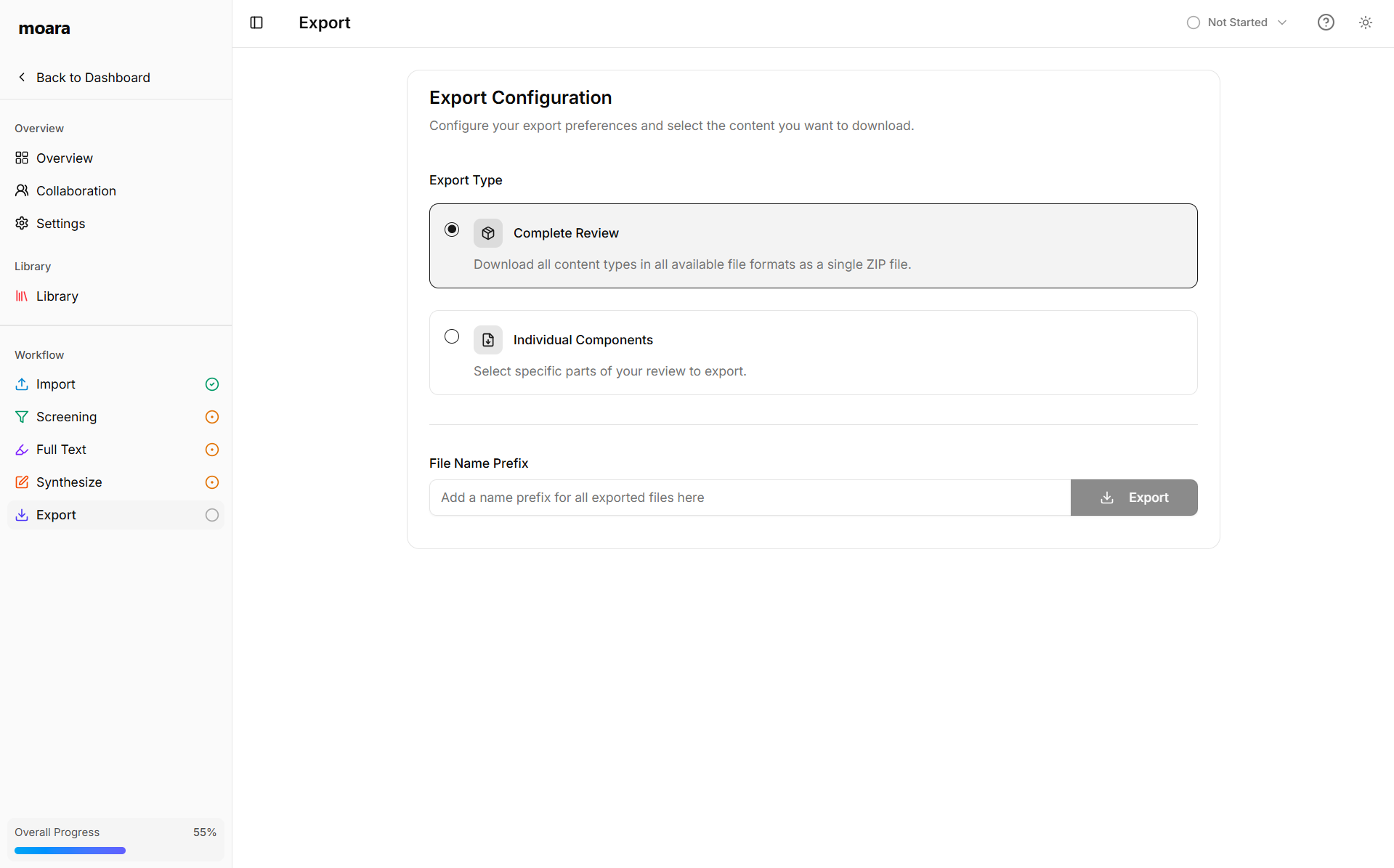
Team management tools let you invite collaborators, track progress, and maintain transparency throughout the review.
Sign up for a free trial: https://app.moara.io/signup
What is moara.io?
moara.io is a literature review platform that helps researchers and librarians organize, screen, and synthesize academic papers. It combines AI-assisted tools with a structured workflow to make both narrative and systematic reviews faster, more transparent, and easier to manage.
Who is moara.io for?
moara.io is designed for anyone who conducts or supports research:
What types of reviews can I conduct with moara.io?
moara.io supports both narrative and systematic reviews.
Can I search for papers directly inside moara.io?
Yes. moara.io includes a cross-disciplinary database of more than 200 million scholarly papers. You can search by keywords or let the built-in AI Query Builder generate optimized search terms from your project title and description.
Can I import my own papers?
Absolutely. You can import PDFs, RIS, NBIB, TXT, or ZIP files directly, or connect moara.io to Zotero and LibKey. The platform automatically extracts metadata, removing duplicates and organizing papers into your project library.
Does moara.io integrate with other research tools?
Yes. moara.io integrates with:
This makes it easy to connect moara.io with your existing research infrastructure.
How does moara.io use AI?
AI is built into moara.io to assist – not replace – researchers. It helps generate search queries, summarize papers, extract structured data, and synthesize findings across studies. Every AI-generated insight links back to the original literature, ensuring transparency and traceability.
Can I collaborate with others on the same review?
Yes. moara.io supports multi-user collaboration, allowing teams to assign papers, share annotations, and track progress in real time. You can see how much of the review is complete and who has screened or commented on each paper.
How are findings generated and verified?
moara.io’s AI analyzes your collection to identify patterns in methodologies, findings, and gaps in the literature. You can review, edit, or add manual findings at any time – ensuring that final outputs remain accurate and evidence-based.
How does moara.io handle citations and references?
All citations are linked back to their original source records (via DOIs or metadata). You can export references in RIS or BibTeX format for use in Zotero, EndNote, or other reference managers.
Can I export my completed review?
Yes. You can export your entire review or individual components – such as annotated PDFs, findings summaries, or data tables – as CSV, RIS, or PDF files. Exports are ready for integration into reports, manuscripts, or teaching materials.
Where does moara.io’s data come from?
moara.io aggregates records from trusted scholarly databases including Semantic Scholar, PubMed, ClinicalTrials.gov, arXiv, Cochrane, Google Scholar, and other verified repositories. Predatory or unreliable content is filtered out automatically.
How secure is my data?
All projects and uploads are stored securely and privately. moara.io uses encrypted connections and secure APIs to protect user data. Uploaded papers and notes are never shared without your consent.
Is moara.io suitable for classroom or library instruction?
Yes. Librarians and instructors can use moara.io to teach structured review methods, information literacy, and critical evaluation of sources. The platform helps students practice real-world screening and synthesis workflows in a guided environment.
How does moara.io support systematic review methodologies like PRISMA?
moara.io allows users to track inclusion/exclusion criteria, manage PRISMA flow counts, and extract standardized data for transparency. This helps maintain consistency and auditability throughout the review process.
Is there a free version of moara.io?
Yes. moara.io offers a free trial that allows individuals to explore the full workflow without entering payment information. Institutional and premium plans unlock advanced features such as team collaboration, analytics, and integrations.
Can librarians include moara.io in their LibGuides?
Definitely. Librarians can feature moara.io in subject or research guides using the provided description, one-line summary, and access link. It can be listed alongside tools like Elicit, Covidence, or Rayyan as a literature review solution.
What makes moara.io different from other AI research tools?
Most AI tools focus on Q&A or chatbot-style interactions. moara.io is built for research workflows, helping users move from search to synthesis in a transparent, structured way. It’s not about giving answers – it’s about organizing evidence.
Where can I learn more or get support?